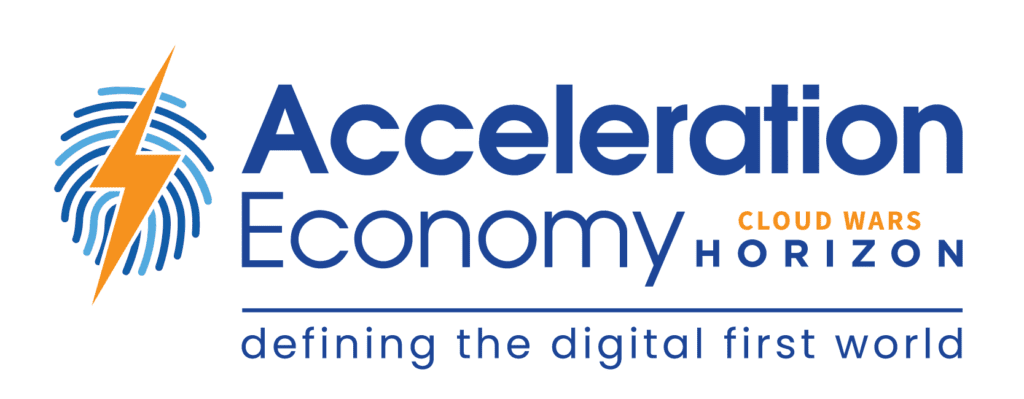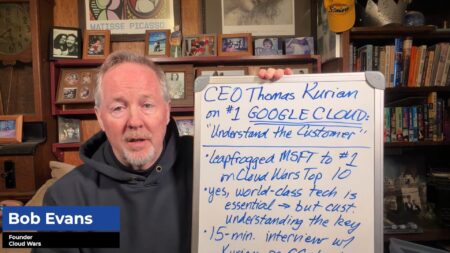There’s no getting away from it. Digital transformation requires a significant energy output: The more power-hungry processes you onboard, the more energy your organization requires. Yet, there is a silver lining.
Cloud technologies are, by design, more energy efficient than traditional on-premise solutions. One Accenture study found that public cloud migration on a global scale can cut carbon emissions by 59 million tons annually. That’s the equivalent of taking 22 million cars off the road every year.
Some of the most prominent players in the space are making concerted efforts to reduce carbon output on a massive scale. Take Google Cloud. By 2030, the company wants all of its data centers to run on carbon-free energy all of the time. At AWS, the goal is to run entirely on renewables by 2025 and to support Amazon’s broader objective of net-zero carbon by 2040.
While these projects may sound ambitious, digitization lends itself to renewables and bolsters the drive for green energy. Ultimately, electricity is a standard, and there’s no quality benefit to sourcing it by burning fossil fuels. Yet, amidst these long-term solutions, you can find targeted, sustainable cloud solutions that work today. One of those is Leaf Cloud.
Sustainability as a Service
When looking at the long-term impact of green cloud initiatives, it’s essential to explore some of the smaller organizations that are making a difference. Based in the Netherlands, Leaf Cloud is a cloud services provider focusing on social responsibility and sustainability.
Leaf Cloud provides various cloud services, including cloud servers, hybrid networking, storage, access to high-performance cloud GPUs, and object storage. While these services are in many ways standard, how Leaf Cloud supports them is not.
The company has built its model on the concept of energy re-use. The core principle is waste reduction, both in terms of excess heat and infrastructure. Currently, the heat generated by data centers is, for the most part, wasted. In the Netherlands, where Leaf Cloud is based, data centers account for 4% of the electricity used.
So, Leaf Cloud addresses the issue by re-using the energy consumed by its data centers. First, power is used to run the centers themselves, then excess heat created by the data centers is used for heating. Ultimately, this means Leaf Cloud is more than just carbon neutral. It is carbon negative.
Carbon Negative Cloud Services
Leaf Cloud reuses an average of 50% of the energy required to run its data centers. So, how does it do it? The key is the carefully targeted distribution of data centers in urban settings.
The company installs its servers in working buildings such as apartment blocks, hotels, or residential homes, where year-round hot water is a caveat. The heat generated by the servers is directly funneled to the structure’s heating system, significantly lowering the reliance of these buildings on outside energy sources and reducing carbon emissions.
Close to 85% of the heat generated by the servers is rerouted into the heating system of the buildings in which they are housed, with the remaining 15% used for cooling. Beyond this, using the existing building and adapting it to accommodate server infrastructure significantly reduces the carbon output associated with the construction, particularly when it is in a remote location that requires additional work to connect the structure to essential services.
For timely insights from Cloud Wars Founder Bob Evans and a roster of leading CXOs on the hows and whys of sustainability’s impact on business processes and profits, please join us for the Acceleration Economy Sustainability Impact Digital Summit on January 26, 2023. Register today for your free streaming pass here.
Wrap Up
While a cloud supplier like Leaf Cloud has its limitations — geographical and volume constraints — it represents a new approach to establishing cloud infrastructure.
Small cloud companies like Leaf Cloud are putting into practice innovative ideas that may seem too niche or need to be more scalable for the most prominent companies to emulate. However, they are laying the groundwork and showing what is possible. This is a good thing, because the need for sustainable solutions is beyond pressing — it’s critical.
And there’s another side to this story. Some of the avenues adopted by hyperscaler cloud companies to address sustainability may have a less positive long-term impact than it would seem, particularly regarding green energy procurement.
In 2021, the top cloud companies procured more than 50% of all corporate clean energy. While this is incredibly encouraging, representing a seismic shift away from fossil fuels, energy hoarding on this scale, particularly when it isn’t reused, can lead to a clean energy drought, forcing other organizations to rely on dirty energy sources. The key is balance, which you get when innovative companies like Leaf Cloud test the waters and re-imagine what’s possible.
For more exclusive coverage of innovative cloud companies, check out Cloud Wars Horizon here:









